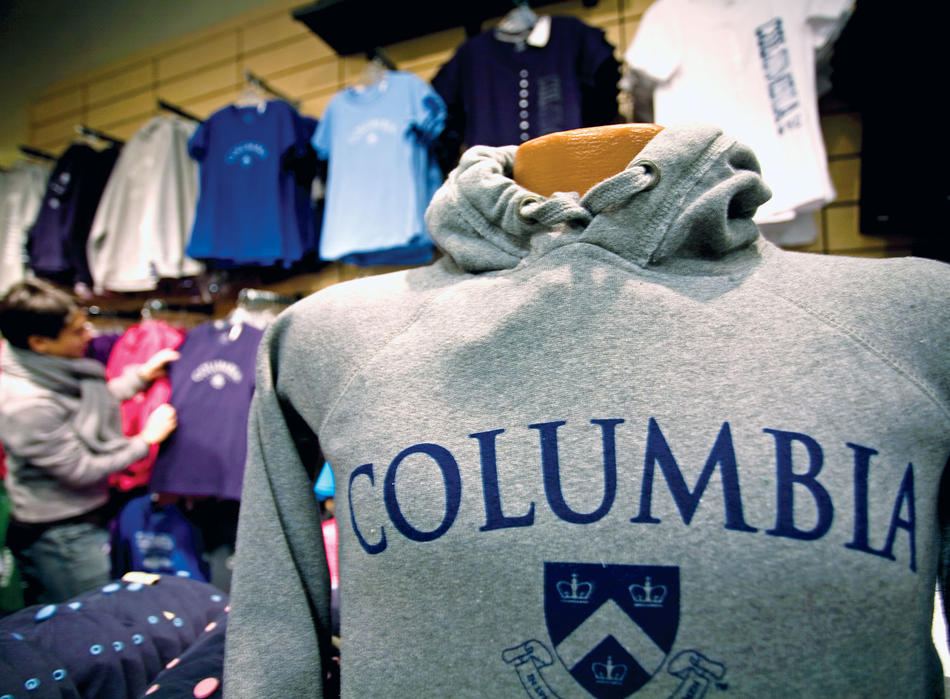Executives at Russell Athletic probably expected that U.S. labor-rights activists would protest when the company shut down one of its Honduran factories in early 2009, soon after workers there had unionized. But would the bad PR hurt Russell’s bottom line? That was more doubtful. The Atlanta-based apparel company had long been criticized for its treatment of garment workers and yet it retained licensing deals with many of the same colleges and universities that were hotbeds of anti-sweatshop protest.
This time, however, the academic community pushed back hard against Russell. Within weeks of the factory’s closing, about a dozen institutions of higher learning, including Columbia, told the company that it could no longer manufacture T-shirts, sweatshirts, and other clothing items bearing their names and logos. By the summer of 2009, more than 80 universities, many under pressure from local chapters of the United Students Against Sweatshops, had dropped their licensing deals with Russell. The boycott was based on solid information about the company’s conduct in Honduras: Workers Rights Consortium (WRC), a watchdog group that is funded by Columbia and 185 other colleges and universities to monitor companies with which they have licensing agreements, concluded in a series of investigations last year that Russell was “systematically and persistently” harassing garment workers who tried to unionize. The factory closing in Choloma, Honduras, which cost 1200 people their jobs, was almost certainly retribution for those workers’ attempts to negotiate collectively for better conditions, the WRC found.
The boycott — the largest ever by colleges and universities against a clothing maker — eventually pushed Russell to the bargaining table. This past winter, representatives of Russell, the WRC, and the laid-off garment workers announced a plan to reopen Russell’s factory in Choloma soon and to give the workers their jobs back. Russell and its parent company, Fruit of the Loom, have also vowed to permit unions at all seven of their Honduran factories, in accordance with Honduran law.
“This is a crucial victory for free-association rights,” says Sharyn O’Halloran, a scholar of labor issues and Columbia’s George Blumenthal Professor of Political Economy and Professor of International and Public Affairs. “It’s going to encourage workers to be more aggressive in articulating their concerns to employers in a collective way.”
O’Halloran, who has mentored students advocating for labor rights since the late 1990s, when the anti-sweatshop movement took root on college campuses, says that Columbia students have been especially passionate on this issue and that the University’s administration is unusually responsive to their concerns. In 2000, Columbia was among the first in a succession of universities to adopt a “code of workplace conduct,” stipulating that its licensees and vendors must recognize unions, pay workers a living wage, grant maternity leaves, refrain from employing children, and observe other basic labor rights. That same year, Columbia was among 44 founding affiliates of the WRC.
Columbia has typically enforced its code of conduct in quiet ways, according to Honey Sue Fishman, executive director of business services. She says that when her office gets complaints about licensees’ or vendors’ labor practices — often from student activists — she works with the companies directly, or through intermediaries such as the WRC and the nonprofit Fair Labor Association, to try to bring them in line with the University’s code of conduct. “Usually, the company will hear our concerns and take reasonable steps to address the problem,” she says, “but with Russell, we had to resort to ending our business relationship.”
Fishman says that if Russell is found to abide by the University’s code of conduct over the next year or so, her office will consider granting the company a license to again produce Lion-emblazoned sportswear. “We’ll be monitoring Russell’s progress very carefully,” she says, “to make sure it treats these workers the way it’s promised to.”



